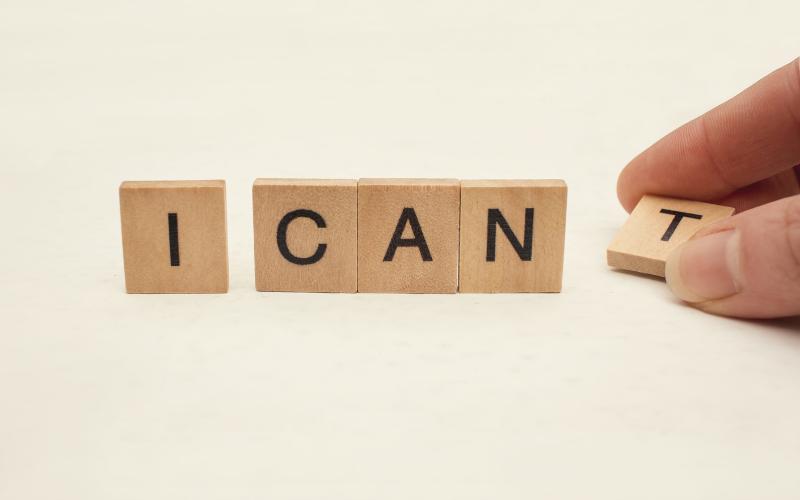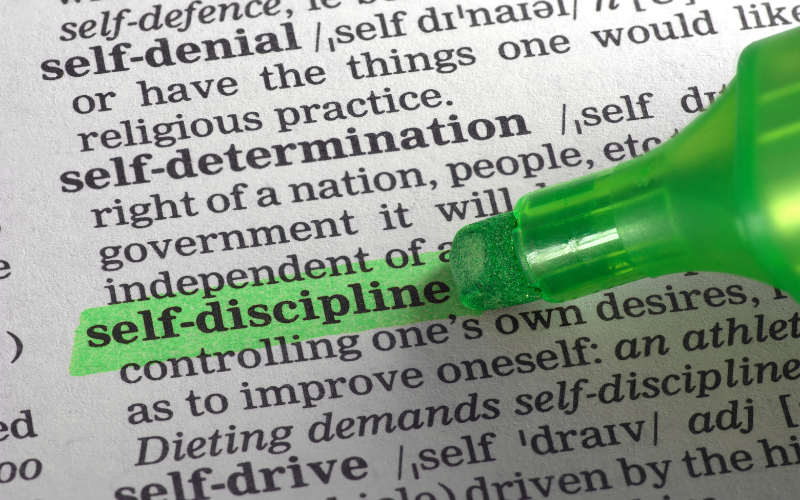When it comes to realizing one’s full potential and accomplishing the things that matter most, self-discipline is an indispensable trait. It is the art of mastering one’s thoughts, emotions, and actions in pursuit of a desired outcome. Achieving this level of self-control may seem daunting, but with the right mindset and techniques, anyone can harness the power of self-discipline and turn their aspirations into reality.
At the heart of self-discipline lies the ability to stay true to one’s goals, despite the obstacles that may arise. Whether it’s the temptation of procrastination, the distraction of immediate gratification, or the allure of giving up, self-discipline helps you persevere. It is the cornerstone of success in all facets of life – from professional pursuits to personal growth and relationships.
Understanding the Power of Self-Discipline
So, what exactly makes self-discipline so powerful? It is the combination of complexity and variation in one’s thoughts and actions that sets the truly self-disciplined apart. Just as a symphony is greater than the sum of its individual notes, so too does self-discipline bring harmony and balance to one’s life. It is the key to unlocking boundless potential and living the life you truly want.
Self-discipline is not just a desirable trait, but a necessary one for success. With the right tools and strategies, anyone can learn to cultivate self-discipline and achieve their wildest dreams. So, embrace the challenge, and let the power of self-discipline guide you to a brighter future.
The Benefits of Developing Self-Discipline
Cultivating self-control can bring numerous advantages to one’s life, including:
-
- A surge in motivation and efficiency
- Refined time management capabilities
- Enhanced decision-making aptitude
- Elevated confidence and self-esteem
- A sense of command and mastery over your existence

Strategies for Developing Self-Discipline
Start with Mindfulness
Awareness is a potent weapon in the development of self-control. By being cognizant of your thoughts and emotions, you’ll have the ability to comprehend your triggers and habits of behavior. This will aid you in making better choices, maintaining a concentration on your aspirations and avoiding distractions.
Set Specific, Measurable Goals
Goal setting is a crucial aspect of self-control. By setting specific, quantifiable objectives, you’ll have a well-defined plan for success. This will assist you in staying focused and motivated, and will provide you with a sense of achievement as you make progress towards your goals.
Create a Daily Routine
Having a daily regimen can be a mighty tool for developing self-control. By creating a consistent routine, you’ll be better able to manage your time, maintain focus on your goals, and sidestep distractions.
Practice Self-Reflection
Self-reflection is an important part of developing self-discipline. By taking time to reflect on your thoughts, emotions, and actions, you’ll be better able to understand your patterns of behavior and make positive changes.
Surround Yourself with Positive People
Surrounding yourself with positive, supportive individuals can have a significant impact on your ability to develop self-control. By seeking out relationships with individuals who are supportive of your goals and inspire you to be your finest, you’ll be better equipped to stay focused and motivated.

Ten Books on Self-Discipline
Here are some of the best books on self-discipline that can help you develop this critical skill:
- “The Power of Habit: Why We Do What We Do in Life and Business” by Charles Duhigg
- “Atomic Habits: An Easy & Proven Way to Build Good Habits & Break Bad Ones” by James Clear
- “The 7 Habits of Highly Effective People” by Stephen Covey
- “Mindset: The New Psychology of Success” by Carol S. Dweck
- “The Miracle Morning: The Not-So-Obvious Secret Guaranteed to Transform Your Life (Before 8AM)” by Hal Elrod
- “The Willpower Instinct: How Self-Control Works, Why It Matters, and What You Can Do To Get More of It” by Kelly McGonigal
- “The One Thing: The Surprisingly Simple Truth Behind Extraordinary Results” by Gary Keller and Jay Papasan
- “Man’s Search for Meaning” by Viktor E. Frankl
- “Drive: The Surprising Truth About What Motivates Us” by Daniel H. Pink
- “Better Than Before: What I Learned About Making and Breaking Habits – to Sleep More, Quit Sugar, Procrastinate Less, and Generally Build a Happier Life” by Gretchen Rubin
These books offer practical advice, insights, and strategies for developing self-discipline and achieving your goals. Whether you’re just starting out or looking to improve your existing habits, these books are a great resource for anyone looking to develop this critical skill.

Common Questions
How much time does one need to cultivate self-discipline?
The journey of developing self-discipline is a highly personal and subjective one. While some may experience significant progress in mere weeks, others may require several months or even years to hone this critical skill. Nevertheless, the most crucial aspect of this process is to exhibit unwavering consistency and persistence in your endeavors.
What are the common obstacles that arise while developing self-discipline?
Distractions, dearth of inspiration, and detrimental self-talk are among the many hurdles that individuals face while cultivating self-discipline. Nevertheless, by recognizing your triggers and behavioral patterns, you can overcome these obstacles and remain focused on your objectives.
Can one develop self-discipline without setting clear goals?
While setting concrete and measurable goals can be a potent means of enhancing self-discipline, it’s not the only path to success. Some individuals have found that being mindful of their thoughts and actions and making incremental modifications to their behavior each day, is sufficient to foster self-discipline. The secret lies in discovering what works best for you and sustaining a consistent and persistent approach.
Can self-discipline be developed at any age?
Absolutely! Self-discipline is a skill that can be acquired at any age. It’s never too late to commence this transformative journey, and its rewards can be reaped at any point in life. Whether you’re just starting your career, seeking to better your relationships, or striving for financial independence, self-discipline can aid you in realizing your aspirations.
Takeaway
The development of self-discipline is an ongoing and dynamic process, but with the right tools and strategies, anyone can achieve it. By embracing mindfulness, setting clear and achievable goals, establishing a daily routine, reflecting on your progress, and surrounding yourself with positive influences, you’ll be well on your way to becoming a more self-disciplined individual and accomplishing your dreams. Remember, self-discipline serves as the cornerstone of all great achievements, so don’t be afraid to invest in yourself and make it a priority in your life.




